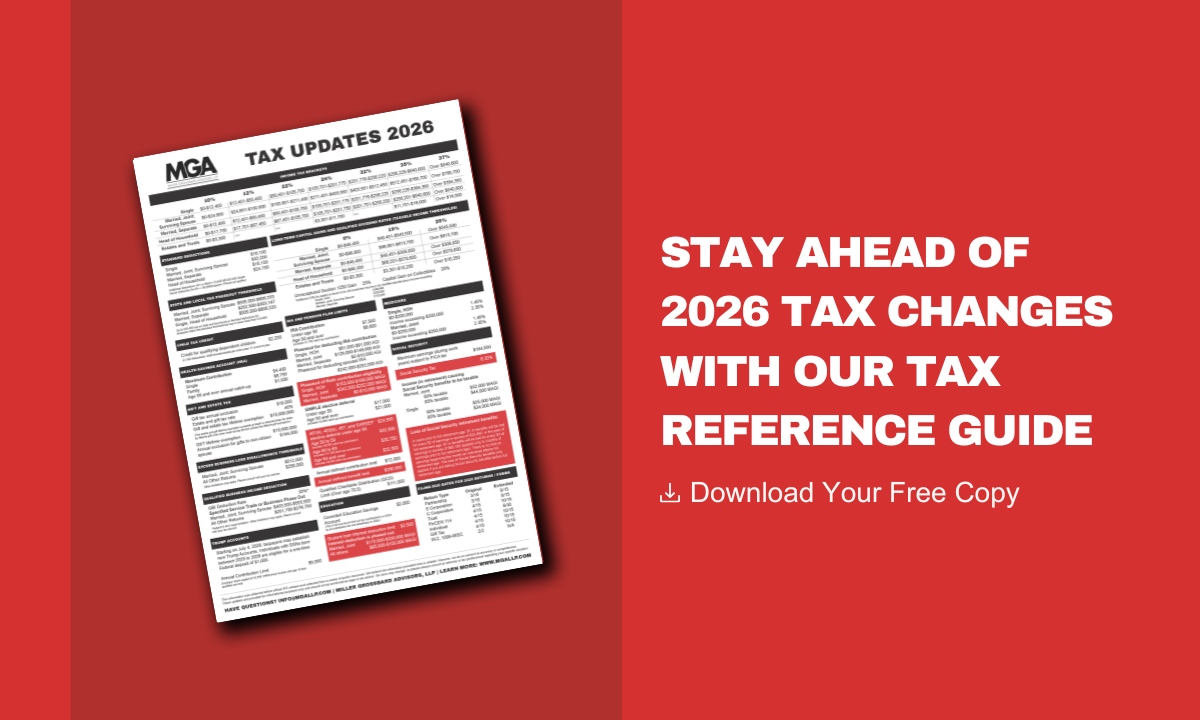The solar energy tax credit is a federal tax credit that provides a financial incentive for homeowners and businesses to install solar energy systems. The credit allows taxpayers to claim a percentage of the cost of the solar energy system as a credit against their federal income taxes. The solar tax credit was created as part of the Energy Policy Act of 2005 and has been extended multiple times, most recently in 2022.
Adam Barr, one of the Partners here at MGA, recently installed a solar energy system on the roof of his home. By doing so, he was able to take advantage of the solar energy tax credit and reduce the cost of his system. In this blog post, Adam shares his first-hand experience figuring out the financial benefits of going solar, including the tax credit.
By sharing Adam's experience, we aim to provide valuable information for those considering installing a solar energy system in their home or business. We also cover various aspects of the solar tax credit, such as how it works, how to claim it, and what qualifies for the credit and touch on the financial benefits of going solar, including long-term cost savings and reduced dependence on fossil fuels.
What is the 2023 federal solar tax credit? How does the federal solar tax credit work? What are the solar incentives in Texas? We’ve got your answers.
The federal government offers a tax credit for individuals who install solar energy systems on their homes called the Residential Clean Energy Credit. This credit allows homeowners to claim a tax credit up to 30% of the cost of the solar energy system. To be eligible for the credit, the solar energy system must be installed on a primary or secondary residence and meet certain performance and safety standards.
The Inflation Reduction Act, passed into law in August 2022, increased the amount of the tax credit for residential solar energy systems to 30% of the installed cost. Additionally, the act extended the availability of the credit to 2034 (ten years past the original expiration date). The tax credit amount is a dollar-for-dollar reduction of the tax due on the taxpayer’s personal income tax return and is not phased out for higher-income taxpayers.
In addition to the federal tax credit, homeowners in Texas also enjoy an exemption from real property taxes for the appraised value of the solar energy system. Taxpayers can submit Form 50-123 to their county appraisal district to claim this exemption.
Adam’s First-Hand Experience / Thoughts on the Financial Benefits of Residential Solar Energy Systems
Adam has been interested in installing a solar energy system on his home for some time, both to participate in the continuing development of renewable energy and to help take some of the pressure off of the sometimes-ailing Texas power grid. However, being an accountant at heart, Adam was determined to wait until installing a solar energy system also made financial sense. The installed system on his house includes nineteen 395W solar panels and is expected to generate between 100% - 110% of his family’s annual electricity usage. Using an average energy price of $0.12 per KWH, Adam is expecting to save approximately $900 per year in electricity costs and is therefore expecting to pay zero dollars for electricity over the life of the system.
To determine whether this system made financial sense, Adam ran a basic calculation of his expected return on investment. The gross cost of the solar energy system was $19,800, but he could take advantage of the federal tax credit and a rebate from the utility company to reduce the system's net cost to $12,285. Based on the value of annual system generation of $900, Adam's expected return on investment works out to about 7.33%. This means that he expects to recoup his investment in the solar energy system in just over 13 years, and he will continue to benefit from reduced energy costs for the lifetime of the system. If energy prices rise with inflation or due to other factors, the decision will look even better in retrospect.
Have Further Questions? Let’s Talk!
We hope you found this blog post helpful in understanding the tax incentives available for residential solar energy systems and that Adam’s experience exploring the financial benefits of installing a solar energy system can help you as you plan for your own home solar electric system.
If you have any questions about the Residential Clean Energy Credit or any other tax incentives related to going solar, please don't hesitate to reach out.
We are here to make the complex simple.
Subscribe Now!
Enjoy reading our articles? Click here to receive instant notifications as we publish new blog posts, videos, webinars, white papers, and more. Or, if you'd prefer monthly updates, you can subscribe here.
.png?width=191&name=mgalogofinal-01%20(3).png)




